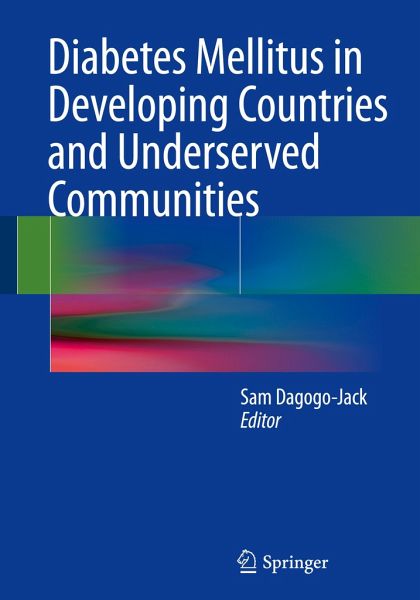
Diabetes Mellitus in Developing Countries and Underserved Communities

PAYBACK Punkte
38 °P sammeln!
Adopting a truly global perspective and a practical approach to diabetes-including pathophysiology, genetics, regional peculiarities, management, prevention and best practices-this book is an excellent resource for clinicians and policy-makers working with patients in more austere settings. The global prevalence of diabetes is estimated to increase from 422 million in 2014 to 592 million in 2035. Sadly, low- and middle-economy countries are projected to experience the steepest increase, but even in developed economies, vulnerable demographic subgroups manifest disparities in diabetes prevalenc...
Adopting a truly global perspective and a practical approach to diabetes-including pathophysiology, genetics, regional peculiarities, management, prevention and best practices-this book is an excellent resource for clinicians and policy-makers working with patients in more austere settings. The global prevalence of diabetes is estimated to increase from 422 million in 2014 to 592 million in 2035. Sadly, low- and middle-economy countries are projected to experience the steepest increase, but even in developed economies, vulnerable demographic subgroups manifest disparities in diabetes prevalence, quality of care, and outcomes. This book extends coverage to those underserved and minority communities in the developed world. In a consistent chapter format, it discusses classification, pathophysiology, genomics, diagnosis, prevention and management of diabetes in economically challenged regions as well as underserved populations in affluent nations. Suggestions regarding future directions in the organization of diabetes care delivery, prevention and research priorities are also provided. The detailed identification of barriers to optimal care and the practical approach to the management and prevention of diabetes make Diabetes Mellitus in Developing Countries and Underserved Communities a valuable resource for clinicians, researchers and health policy leaders.












